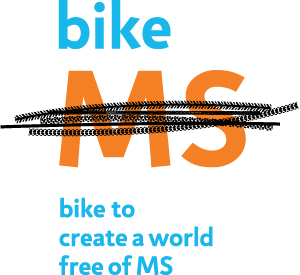I have been determined to add this post to help explain my spiritual/religious life and experiences, and how I am using them to help deal with my depression.
The only problem was that as I composed the post in my head, a problem arose: I realized that it had the potential to become very verbose, meandering, and seemingly pointless. Until the conclusion there would be many seemingly tangential meanderings and asides. This would lead to me either submitting an incomplete exegesis or–more likely–completely boring you, the reader.
Therefore I have decided to split it into several posts, which will hopefully be illustrative of my journey without being overwhelming.
So where to start? I guess with my background. I was raised (and remain) Catholic. I was educated in an Episcopal school followed by Catholic schools. I grew up in a community that was overwhelmingly Lutheran and Catholic. As you can imagine, my early faith was influenced by a highly liturgical and rote environment. I (sincerely) believed. Because I was told to do so.
Things opened up a little more when I went to High School. A few things stood out to me. As a Catholic at a Catholic school, I was required to have 1 religion class each semester for all four years (non-Catholics were only required to take religion courses for two years.) That meant as an upperclassman I was able to choose elective religion courses. I can specifically remember two that stuck out to me: Church history (explicitly a history of the Catholic church, but of course not complete without discussing other Christian denominations) and Ecumenism (fka Ecumenicalism, fka Comparative religions.) The Ecumenism class was especially interesting considering that we delved not only into other denominations but also other religions entirely. Unfortunately (?) it was not necessary for me to complete any extra credit projects in order to get an A. Those projects were to visit a regular worship service to observe and then report. I now wish that although it was not necessary for me, that I still had participated. At the time I was particularly interested in attending Temple and a Unitarian Universalist services.
The other profound impact was in the form of my favorite teacher (and incidentally best–at any level), Sr. Jeanette. Despite being relatively immobile (she had a hip replacement and rode around on an electric cart), Sr. Jeanette was by far the most intimidating teacher in school. She just had an aura about her that demanded respect. She also explicitly demanded respect. There were no yeahs or nopes or uh-huhs or nuh-uhs in her class. It was always “yes” or “no”, spoken clearly and with authority. She seemed to some to be perpetually cross but if you played by her rules, she made it quite evident that she had a heart of gold.
Perhaps most importantly (in regards to my faith, that is) was not how she taught but what she taught: chemistry and physics. She was brilliant and demanding. I remember how she inexplicably called me to the board every day to work out chemistry problems on the board. That was until I had memorized a sufficient amount of information from the periodic table of elements. Once I did, I was no longer called with as much frequency. Ah. Anyway, the most important thing that she taught me was that religion and science could indeed intersect. Despite her scientific knowledge, she had what appeared to me to be a very strong and unshakable faith. She retired from teaching after my senior year, and passed away a couple of years later. I still miss her.
But that intersection of faith and religion helped me formulate my go to thought during a crisis of faith (indeed they would come and continue from time to time). I realized that there are two paradoxes that science could never rationally explain to me in a rational and physical language. The first: the universe is either finite or infinite. Either are equally confounding. One could say that because there is theoretically a multiverse, than the idea of a universe as being finite makes sense. OK, but then is there a finite or infinite number of universes? The other paradox is equally perplexing: either there was a beginning for everything, or something always existed. At the very core of matter might be nothing but energy, but according to the laws of physics we cannot create matter, and we cannot create energy (only transmit it in a different form).
The only reasonable explanation for me was a creator.
Part 2 will consist of: College, Contemplating the Priesthood, and Further Spiritual Exploration.



